Private detective services in Türkiye operate in a legal grey zone, as the profession is not officially regulated or recognized under Turkish law. Unlike in some other jurisdictions, private detectives in Türkiye lack legal authority to collect evidence, conduct surveillance, or access personal data. These powers are exclusively granted to licensed attorneys under the Attorneyship Law. As a result, many investigative activities carried out by unlicensed individuals may constitute criminal offenses – such as violations of privacy and unlawful data processing – and the information obtained is often inadmissible in court. Despite these legal limitations, demand for private investigation services remains high, especially in areas like infidelity, corporate fraud, and background checks. This unregulated market poses significant legal and reputational risks for both service providers and clients. Law firms can play a key role in this field by offering legally compliant alternatives, supervising third-party investigations, conducting lawful due diligence, and advising clients on evidence admissibility. Bıçak Law Firm provides comprehensive legal services in this area, helping clients achieve their objectives without compromising legality or ethics.
Can Private Detective Operate Legally in Türkiye?
In Türkiye, operations of private detectives are becoming more visible, but the profession is not officially regulated by law. Unlike in some countries, there is no legal framework or licensing system for private detectives. According to Turkish law, only attorneys have the legal authority to collect evidence for use in court. Therefore, any evidence gathered by private detectives is generally not admissible and may even lead to legal problems due to privacy violations. This study examines the current situation of the private detective sector in Türkiye, its legal limitations, the types of services offered, and the risks for clients.
Legal and Regulatory Framework in Türkiye
Absence of Specific Legislation
Türkiye does not currently have a dedicated law that regulates the activities of private detectives. Although the concept of private investigation has gained popularity, especially in urban centers, there is no official recognition or legal definition of the “private detective” profession under Turkish law. As such, individuals or agencies offering such services operate in a legal vacuum -without licensing, supervision, or a formal code of conduct. This lack of regulation leads to confusion regarding the scope of permissible activities and raises significant legal risks for both service providers and clients.
Over the past two decades, several draft laws have been introduced with the aim of regulating private detective services, most notably in 2011 and again in 2016. These drafts proposed strict conditions for licensing, oversight by the Ministry of Interior, and limitations on areas of investigation. However, none of these proposals progressed to formal enactment due to concerns over privacy, oversight challenges, and potential misuse.
Legal Authority to Collect Evidence Belongs to Attorneys
Under Turkish law, the authority to collect evidence for use in legal proceedings is granted exclusively to licensed attorneys (avukatlar). This authority stems from:
- Law No. 1136 on Attorneyship (Avukatlık Kanunu), particularly Article 2, which defines an attorney’s role as protecting and defending clients’ rights before judicial and administrative bodies.
- Code of Civil Procedure (HMK) and Code of Criminal Procedure (CMK), which provide attorneys with the right to submit evidence, request information from third parties, and obtain official documents.
Private detectives, on the other hand, do not have any legal status or official capacity to collect evidence on behalf of others. Any investigative activity they undertake – such as following individuals, recording conversations, taking photographs, or accessing personal data – may violate constitutional rights and statutory protections, and such information is generally not accepted as evidence in court.
Relevant Criminal Law Provisions
Activities commonly performed by private detectives, if conducted without legal authority or consent, may amount to criminal offenses under the Turkish Penal Code (TCK). Some key provisions include:
- Article 134 – Violation of Privacy: Unlawful tracking, audio or video recording, or observation of individuals may constitute a violation of private life.
- Article 135 – Recording of Personal Data: Collecting or storing personal data without consent is a punishable offense.
- Article 136 – Unlawful Dissemination of Data: Sharing such data with third parties or using it for commercial purposes is also criminally liable.
- Article 132 – Violation of Communication Privacy: Listening to or recording private communications without legal authority is strictly prohibited.
A private detective who engages in these activities may face prosecution, as could the person or entity that hired them.
Data Protection Obligations
The Law on the Protection of Personal Data (KVKK) No. 6698 imposes strict rules on the collection, storage, processing, and transfer of personal data. The law applies to both public and private entities, and includes penalties for unauthorized data collection.
Private detectives who gather information on individuals – such as identity details, addresses, phone numbers, or surveillance records – without explicit consent or legal basis, are likely in breach of KVKK. The Personal Data Protection Authority (KVKK Kurumu) may impose administrative fines or initiate criminal referrals in such cases.
Commercial Disguise and Operating Practices
Due to the absence of regulation, many private detectives operate under alternative business classifications, such as:
- Consultancy firms (danışmanlık şirketi),
- Security advisory services,
- Legal risk or compliance consultants.
These designations are used to register the business with the trade registry, but they do not confer any special legal authority or immunity from liability. The use of vague or misleading service descriptions also creates challenges for enforcement and consumer protection.
Past Legislative Proposals
The most notable attempt to regulate private detectives was the 2011 Draft Law on Private Detectives, which included the following elements:
- Supervision and licensing under the Ministry of Interior,
- Restriction from intervening in ongoing police or judicial investigations,
- Prohibition on carrying firearms, using uniforms, or giving the impression of public authority,
- Mandatory record-keeping and reporting obligations,
- Sanctions for violations, including revocation of license.
Despite support from some professional circles, the draft was never enacted, largely due to criticism about inadequate safeguards for privacy and weak oversight mechanisms. Similar proposals resurfaced in subsequent years but faced the same fate.
Legal Risks for Clients
Clients who hire private detectives may unknowingly expose themselves to legal risks. If a detective conducts unlawful surveillance or data collection, the client may be held liable as an accomplice or instigator. Moreover, evidence obtained through these means is generally inadmissible in court, undermining the purpose for which the detective was engaged.
Hiring a detective does not create legal protection or justification for actions that violate individual rights or statutory laws.
Until comprehensive regulation is adopted, the legal environment surrounding private detective services in Türkiye will remain unstable and potentially hazardous for all parties involved.
Market Structure and Key Players in the Turkish Private Detective Sector
Although unregulated, the private detective sector in Türkiye has grown steadily over the past decade, driven largely by public interest in personal security, infidelity investigations, fraud detection, and background checks. Despite the lack of official statistics or oversight, anecdotal evidence and media reports suggest that hundreds of firms and individuals operate as private investigators across major Turkish cities, especially in Istanbul, Ankara, and Izmir.
These firms often advertise their services online and present themselves as “private detective agencies” (özel dedektiflik bürosu) or “professional intelligence consultants” (istihbarat danışmanları). However, their legal status remains ambiguous, and many of them are registered under general trade categories such as “consulting,” “security services,” or “legal support.”
Types of Services Offered
Private detective firms in Türkiye typically offer a wide range of services, including:
- Infidelity Investigations: Surveillance of spouses or partners suspected of cheating.
- Missing Persons Tracing: Locating estranged relatives, debtors, or adopted family members.
- Pre-Marital or Background Checks: Investigation of an individual’s criminal record, social behavior, financial status, and personal history.
- Corporate Investigations: Employee monitoring, theft detection, due diligence, or uncovering internal fraud.
- Digital Investigations: Recovery of deleted files, social media analysis, cybercrime-related inquiries.
- Asset Searches and Debt Collection Support: Tracing movable or immovable assets and evaluating a debtor’s solvency.
- Undercover Assignments: Posing as a customer or employee to gather intelligence in corporate environments (legally questionable).
The most in-demand services are related to marital fidelity, corporate due diligence, and locating individuals.
Client Profile and Demand Dynamics
The typical clientele includes:
- Private individuals seeking answers to personal problems, such as suspicious relationships or missing persons.
- Businesses and employers looking to protect against internal theft, data leaks, or to assess potential business partners.
- Law firms occasionally inquire about specific background information or field observations, but most refrain from formal engagement due to legal concerns.
- Foreign nationals or companies, particularly in cross-border marriage disputes or commercial fraud cases.
The demand is often discreet, sensitive, and irregular. It peaks during times of personal crisis, legal proceedings, or commercial disputes. There is also a noticeable uptick in demand from the Turkish diaspora, especially in Europe, who seek assistance with matters inside Türkiye.
Key Players and Visibility
Due to the lack of formal registry, identifying key players is difficult. However, a number of agencies have established significant online visibility and media presence:
- Some internet platforms claim national reach and present themselves as “pioneers” or “leaders” in the field.
- Some firms also maintain Turkish-language YouTube channels or publish blog content aimed at SEO optimization.
- There is no professional chamber or trade association exclusively for private detectives, although some individuals claim affiliation with international bodies (unverified).
Some actors claim former military, intelligence, or law enforcement backgrounds, using this to build credibility. However, the absence of regulation means that no qualifications are officially required, and quality varies dramatically.
Pricing Structure
Fees in the sector are not standardized and can vary significantly depending on the complexity, risk, and duration of the assignment. Pricing is often non-transparent, and formal contracts are rare. Payment is usually requested in cash or via personal accounts, creating further legal and ethical risks for clients.
Relationship with Legal Sector
While attorneys are the only professionals legally permitted to gather evidence, some detective firms market themselves as “supporting lawyers” in cases involving infidelity, fraud, or debt collection. However, formal cooperation between attorneys and private detectives is rare and legally risky.
There is a growing need for compliance-oriented services where law firms supervise the conduct of investigators to avoid illegal activity and ensure that any gathered information is lawfully obtained or usable in a legal proceeding.
Risks and Reputation Management
The sector suffers from:
- Lack of professional ethics or accountability
- Possibility of fraud or scams (clients being overcharged or receiving no useful service)
- Involvement in illegal surveillance or data collection
- Risk of reputational damage for clients, especially in high-profile personal or corporate cases
Media exposés and criminal cases involving rogue “detective” operators have highlighted the dangers of engaging with unqualified or unscrupulous service providers.
Legal Risks, Ethical Challenges, and Compliance Strategies
Operating without a clear legal framework exposes private detectives in Türkiye to significant legal risks. Since private detectives are not authorized by law to collect evidence, conduct surveillance, or access personal data, many of their standard activities may amount to criminal offenses under Turkish law. Some of the key legal risks include:
- Violation of Privacy (TCK Article 134): Unauthorized surveillance, photographing or filming individuals without their consent, especially in private settings.
- Unlawful Data Collection (TCK Articles 135–140): Gathering, storing, or distributing personal information without legal justification or consent.
- Unlawful Access to Communications (TCK Article 132): Listening to, recording, or intercepting phone calls, messages, or emails without authorization.
- Defamation and Insult (TCK Articles 125–131): Disseminating incorrect or damaging information based on unverified investigation findings.
Private detectives found engaging in such conduct may face criminal charges, civil lawsuits, and potential administrative sanctions under the KVKK (Personal Data Protection Law).
A striking recent example illustrates the risks and legal consequences of unregulated private detective activities in Türkiye. In October 2025, the National Intelligence Organization (MİT), together with the Istanbul Chief Public Prosecutor’s Office and the police, carried out operations against individuals allegedly collaborating with the Israeli intelligence service Mossad. Among those detained were a private detective, Serkan Çiçek, accused of accepting surveillance tasks and crypto payments from a Mossad operative posing as a law firm employee, and lawyer Tuğrulhan Dip, accused of unlawfully selling personal data from official registries to detectives working for foreign intelligence. These arrests underline the blurred line between lawful investigative services and activities that can constitute espionage or serious criminal offenses under Turkish law.
Legal Risks for Clients
Clients who engage private detectives also assume legal and reputational risk, including:
- Complicity or instigation liability: If a detective commits a crime during an assignment, the client may be prosecuted as an instigator or accomplice.
- Admissibility of evidence: Information obtained illegally (e.g., secret recordings or tracking) is inadmissible in court and may even backfire against the client’s case.
- Violation of data protection laws: Clients may be fined by the Personal Data Protection Authority if they are found to have commissioned illegal data collection or surveillance.
- Reputation damage: Hiring a private detective, especially for sensitive matters such as infidelity or corporate spying, can result in unwanted publicity or professional embarrassment.
Ethical Challenges
Due to the lack of oversight, the sector suffers from numerous ethical issues:
- Deceptive advertising: Some detective agencies exaggerate their capabilities or present themselves as legally authorized to conduct investigations.
- Exploitation of vulnerable clients: Individuals in emotional distress (e.g., after marital breakdowns) are often overcharged or misled with false promises.
- Conflicts of interest: Detectives may serve opposing parties or engage in blackmail tactics.
- Lack of confidentiality safeguards: Unregulated operators may mishandle sensitive information, leak findings, or use them for personal gain.
These ethical gaps further highlight the urgent need for clear legal boundaries, professional standards, and mechanisms for client protection.
International Best Practices and Lessons
In many countries, the private investigation sector is regulated under strict laws that define:
- Licensing requirements (e.g., background checks, training, insurance)
- Codes of conduct and ethics
- Permissible activities and evidence collection boundaries
- Disciplinary procedures and liability systems
For example:
- United Kingdom: Private investigators must comply with the Investigatory Powers Act and Data Protection Act; licensing is handled by the Security Industry Authority (SIA).
- Germany: The profession is partially regulated, with detectives often cooperating under strict GDPR compliance, and many hold membership in national detective associations.
- United States: Private investigation is regulated at the state level, with licenses, continuing education, and legal limitations in place.
These models show that regulation can coexist with a functioning private investigation market, provided that roles, boundaries, and accountability are clearly defined.
Compliance Strategies for Law Firms and Clients
In the absence of formal regulation, compliance strategies are essential for minimizing risk. These include:
✅ For Law Firms:
- Avoid outsourcing investigation tasks to unlicensed individuals.
- If investigative input is necessary, use attorneys or authorized experts to collect data legally.
- Supervise third-party information gathering, ensuring legality under the TCK and KVKK.
- Include clear disclaimers and contractual clauses in client agreements regarding the limits of legal evidence gathering.
✅ For Clients:
- Request transparency: Ask for a written service agreement with detailed scope, fees, and legal disclaimers.
- Avoid illegal methods: Do not instruct detectives to install trackers, record conversations, or hack digital platforms.
- Consult a lawyer first: Determine whether a legal strategy can achieve the same results using lawful tools (e.g., court-ordered discovery or law enforcement assistance).
The Case for Legal Reform
Given the growing demand and the legal ambiguity of the profession, there is a strong case for legislative reform in Türkiye. An effective legal framework could include:
- Licensing and training requirements
- Ethical standards and oversight mechanisms
- Role restrictions (excluding criminal investigations)
- Evidence admissibility standards
- Legal liability and complaints system
Such a framework would protect both investigators and clients, and enable attorneys to cooperate with licensed professionals uner lawful supervision.
Strategic Opportunities for Law Firms in the Private Investigation Sector
Despite the legal uncertainty surrounding private detective services in Türkiye, law firms are uniquely positioned to bring structure, accountability, and legality to this demand-driven sector. With appropriate safeguards, legal professionals can play a central role in supervising, verifying, and supplementing investigative activities – ensuring that both the client’s interests and the rule of law are respected.
This phase explores how law firms can strategically engage with the private investigation field without breaching legal or ethical boundaries, while also offering value-added services that meet real client needs.
Legal Supervision of Investigation Activities
One of the most effective ways for law firms to become involved is by offering legal supervision of investigative activities. This can include:
- Reviewing the legality of proposed actions by private investigators before they are executed.
- Drafting lawful scopes of work, including what information may be collected and how.
- Instructing private investigators only for activities that are non-invasive, such as public record searches or open-source intelligence (OSINT).
- Acting as an intermediary between the client and the investigator to prevent illegal instructions.
This approach allows law firms to shield their clients from liability and ensure that all findings can either be used in court or, at the very least, do not create legal exposure.
Evidence Validation and Admissibility Consulting
Law firms can offer dedicated services in evidence admissibility consulting, including:
- Assessing whether information collected by third parties (including private detectives) is legally admissible in civil or criminal proceedings.
- Advising clients on alternative, lawful methods to obtain the same information – such as discovery motions, expert reports, or court-ordered investigations.
- Identifying risks of tainted evidence, including its possible rejection in court and repercussions under criminal or disciplinary law.
By offering this guidance, law firms position themselves as guardians of legality and procedural integrity, particularly in high-stakes disputes or litigation involving sensitive matters.
Due Diligence and Background Screening Services
Another area where law firms can legitimately compete with or complement private detectives is in conducting legal due diligence and background checks, especially for corporate clients. This includes:
- Corporate structure and shareholding analysis (via public trade registries and land registries).
- Litigation history and enforcement record analysis.
- Sanctions screening and politically exposed person (PEP) checks.
- Social media and reputational assessments (within public domain).
- Cross-border compliance checks using international databases.
These services can be marketed as part of KYC (Know Your Client) or corporate compliance packages, particularly for foreign investors, M&A transactions, or employment screenings.
Partnering with Verified Experts
Where non-legal investigative support is required (e.g., forensic accounting, cyber security, or asset tracing), law firms can establish trusted networks of verified experts who:
- Operate within the bounds of Turkish law,
- Hold appropriate professional licenses or certifications (e.g., certified forensic experts, licensed IT professionals),
- Agree to work under legal supervision or attorney-client privilege frameworks.
By creating multi-disciplinary investigation teams, firms can enhance their litigation, arbitration, or corporate advisory capabilities without engaging in risky partnerships.
Risk Management Advisory for High-Net-Worth Clients
Private clients increasingly face risks such as extortion, fraud, romance scams, cyberstalking, and reputational attacks. Law firms can offer confidential advisory and protective legal services, such as:
- Reputation management (including takedown requests and defamation lawsuits),
- Digital identity protection,
- Cease-and-desist letters and legal notices,
- Civil and criminal complaints,
- Coordination with authorities in harassment or blackmail cases.
These services align with the growing demand for discreet, lawful, and effective private support, often overlapping with the areas covered by private detectives – but delivered with legal protection and professional ethics.
Thought Leadership and Policy Advocacy
Given the legal vacuum in this field, established law firms can take the lead in shaping policy and raising awareness by:
- Publishing legal commentary and blog posts on the risks of unregulated detective services.
- Participating in bar association panels or legal reform commissions concerning surveillance, privacy, and private security.
- Organizing client seminars or webinars on the legal limits of private investigations and compliance in sensitive matters.
- Advocating for a regulated and licensed model for non-lawyer investigators – mirroring international best practices.
This not only strengthens the firm’s reputation as an industry leader but also fosters trust among clients navigating this complex terrain.
Law firms in Türkiye have a unique opportunity to bring legality, professionalism, and trust to the demand for private investigation services. Rather than competing directly with unregulated detectives, lawyers can position themselves as lawful advisors, supervisors, and compliance leaders in the field. This approach not only enhances client protection but also reinforces the legal profession’s role as the cornerstone of ethical and lawful dispute resolution in modern society.
Conclusion and Recommendations
Key Findings
This study has explored the growing yet legally ambiguous field of private detective services in Türkiye. While public demand for investigative assistance – ranging from infidelity inquiries to corporate due diligence – is steadily increasing, the profession remains unregulated by Turkish law. The absence of a licensing framework, professional standards, or oversight mechanisms creates a legal and ethical grey zone in which both service providers and clients operate at considerable risk.
One of the most critical findings is that only licensed attorneys are legally permitted to collect evidence for use in judicial proceedings in Türkiye. Private detectives do not possess such authority, and their activities – such as unauthorized surveillance, personal data collection, or digital tracking – may constitute criminal offenses under the Turkish Penal Code (TCK) and the Personal Data Protection Law (KVKK). Furthermore, any information obtained illegally is generally inadmissible in court and may lead to liability for both the detective and the client.
Despite these risks, the private investigation market continues to grow, especially in large cities and among the Turkish diaspora. Services range from personal and marital investigations to corporate fraud detection and background screening. However, the lack of transparency, accountability, and legal compliance makes this sector highly problematic from a rule-of-law perspective.
Strategic Role of Law Firms
As the legal landscape surrounding private detective services remains unsettled, law firms have a vital role to play in guiding clients, supervising investigative activities, and offering lawful alternatives. By stepping into this space with a focus on compliance, admissibility, and ethical boundaries, attorneys can protect their clients while still addressing their investigative needs.
Instead of direct engagement in unlawful or unlicensed investigation, law firms can:
- Legally collect evidence on behalf of clients,
- Supervise or structure limited collaborations with external experts,
- Offer reputational and digital risk management,
- Provide due diligence and asset-tracing services within legal boundaries,
- Guide both corporate and private clients through lawful information-gathering processes.
Bicak’s Comprehensive Services
Bıçak Law Firm, as a leading legal practice based in Ankara and Istanbul with a nationwide and international client base, is well-positioned to offer comprehensive legal services related to private investigative needs – within the framework of the law.
Our firm’s offerings in this area include:
✅ Legal Evidence Collection: We collect and submit lawful evidence before courts and administrative bodies through licensed attorneys, ensuring full compliance with procedural law.
✅ Due Diligence & Background Checks: We provide advanced corporate and individual screening using public registries, litigation records, sanctions databases, and legal disclosures.
✅ Risk & Reputation Management: We support high-net-worth individuals, public figures, and institutions with strategies to protect against defamation, harassment, scams, and blackmail.
✅ Compliance Supervision of Third Parties: When clients require technical or investigative support, we structure and supervise such collaborations, ensuring all activities remain within legal limits.
✅ Digital & Cybersecurity Legal Support: We offer guidance and enforcement against cyberstalking, online fraud, and digital privacy violations through legal channels.
✅ Strategic Legal Advisory: We advise clients on the admissibility of evidence, design compliant investigative strategies, and represent them in civil, criminal, or administrative proceedings.
With a team of experienced attorneys, academics, and legal consultants, Bıçak Law Firm stands out as a reliable, ethical, and knowledgeable partner in all legal matters related to investigation, surveillance, evidence collection, and client protection.
Recommendations for Policy and Practice
To address the current legal uncertainty and protect public interest, the following measures are recommended:
- Legislative Reform: Türkiye should consider enacting a law regulating private detective services, introducing licensing, ethical standards, and accountability mechanisms – similar to international models.
- Public Awareness: Clients should be informed of the legal risks of hiring unlicensed detectives and the inadmissibility of illegally obtained evidence.
- Professional Partnerships: Law firms should take the lead in developing frameworks for cooperation with external experts – engineers, cyber analysts, and forensic specialists – under legal supervision.
- Capacity Building: Legal professionals should continue to expand their capabilities in digital investigations, open-source intelligence, and due diligence to meet evolving client needs lawfully.
Final Remarks
In a climate where personal and corporate risks are increasingly complex, the demand for reliable investigation services is undeniable. However, the solution cannot come from unregulated or unlawful operators. It must be led by the legal profession – through compliance, strategy, and ethical service delivery. Bıçak Law Firm is committed to upholding this standard, offering clients not only results but also security, legality, and peace of mind.
 English
English Türkçe
Türkçe Français
Français Deutsch
Deutsch



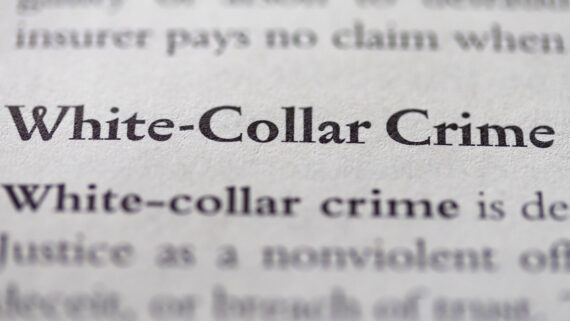

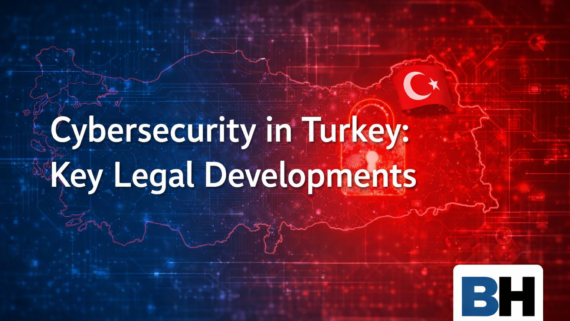
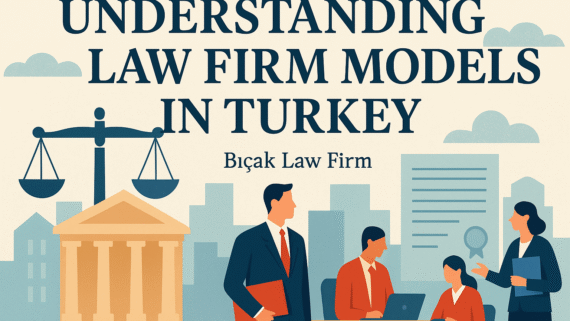

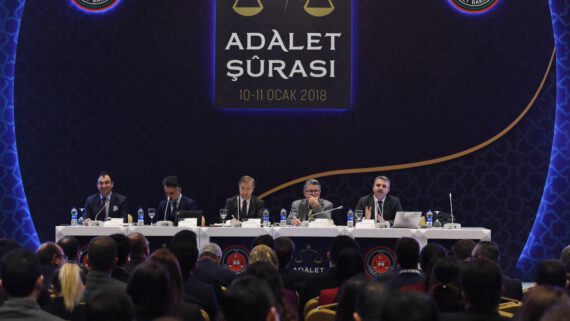
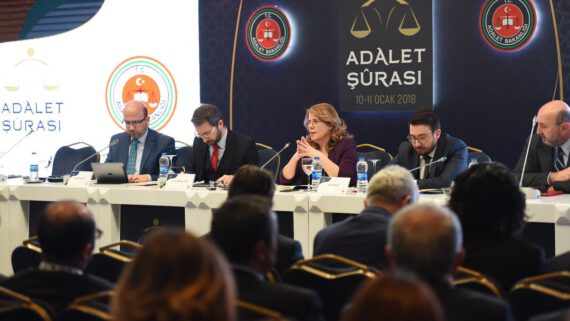
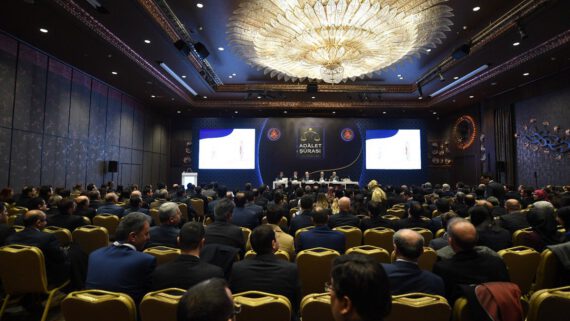
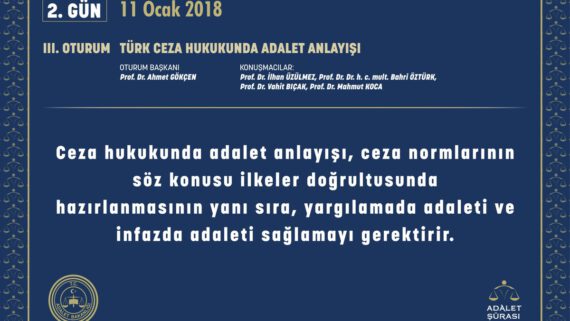

Comments
No comments yet.